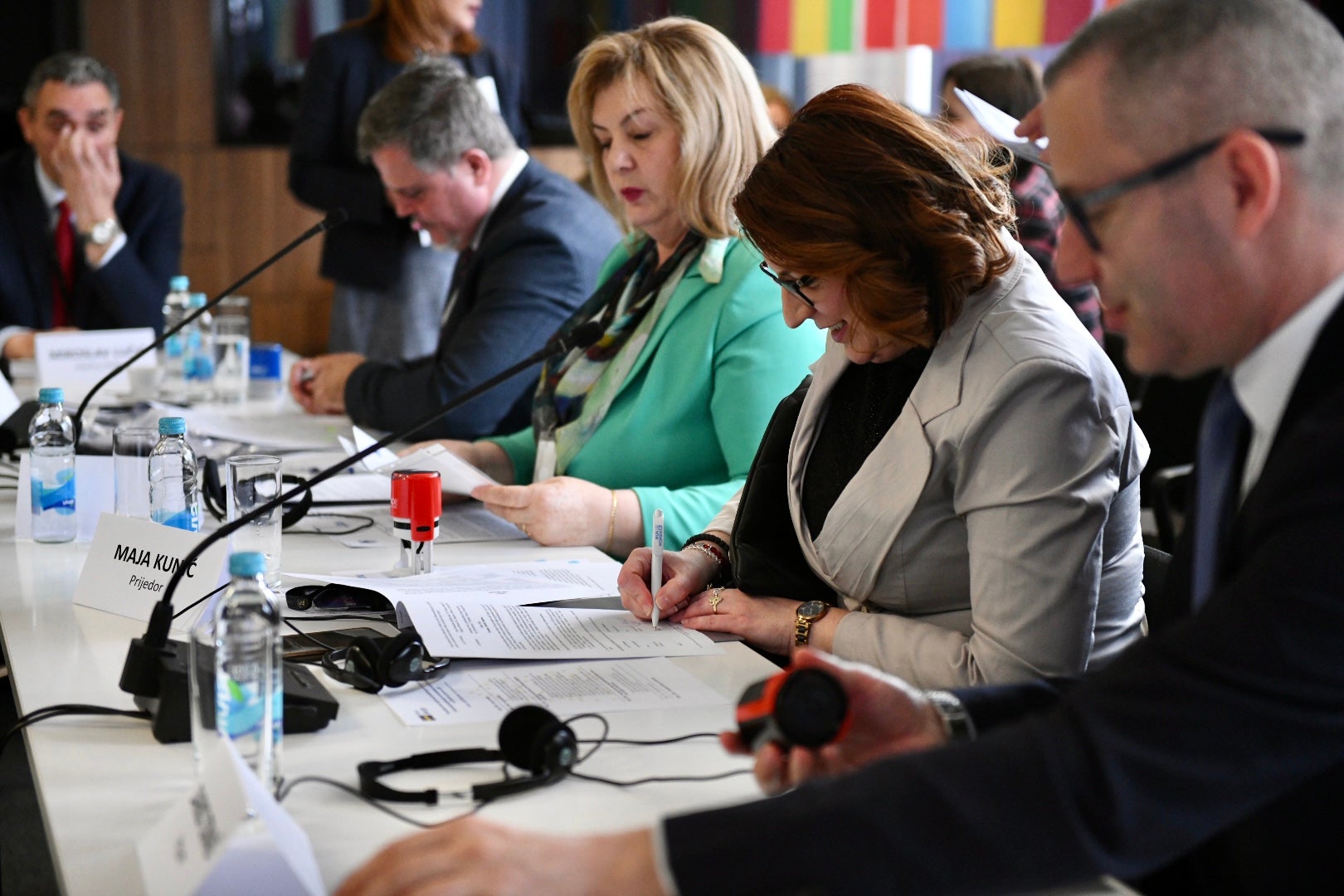Press Release: Twelve cities and municipalities in Bosnia and Herzegovina partner with UN Women to improve gender-responsive budgeting at the local level
Date:

Sarajevo, 4 April 2023 – Twelve cities and municipalities in Bosnia and Herzegovina (BiH) signed memorandums of understanding (MoUs) with UN Women to improve gender-responsive budgeting and management of public finances at the local level.
By signing the two-year MoUs, these 12 cities and municipalities will implement concrete measures to improve creation, implementation and monitoring of budgets that are equally responsive to the needs of women and men. With targeted support from UN Women, they will also strengthen the capacities of public administration officials and local councillors to achieve quality implementation of gender-responsive budgeting principles.
The agreements were signed today by representatives of cities and municipalities of Banja Luka, Bosanska Krupa, Centar Sarajevo, Istočna Ilidža, Lukavac, Mostar, Prijedor, Prnjavor, Srbac, Tešanj, Travnik and Trebinje.
“It is at the municipal level that budgeting can meet the diverse needs of women and men properly. Gender-responsive budgeting at the municipal level does exactly that – it helps allocate resources where they are needed to advance gender equality and empower women. This ensures that policies, programmes, and services respond to the right priorities. We look forward to working closely together in the coming period, and advancing gender equality in towns and municipalities,“ said David Saunders, UN Women representative in BiH.
“UN Women places great importance on the role of local governments as key partners and drivers on advancing gender equality. Well-designed budgets with a gender perspective can improve the efficiency and equity of the overall municipal budget process. This will lead to better use of resources, better governance and ensure inclusive local economic development and growth,“ said Ermira Lubani, gender-responsive budgeting programme specialist at UN Women Regional Office for Europe and Central Asia.
"The Municipality of Tešanj, together with other municipalities in BiH, confirms with this Memorandum its determination to work on strengthening gender equality and strengthening the role of women in public life. This project allows us to raise the implementation of the Gender Action Plan to a higher level and thereby contribute to the development of the municipality. The development of every local community in the world rests on the use of all human and other potentials, and this is a lesson for our country and for our municipalities and cities," said Suad Huskić, Mayor of the Municipality of Tešanj (on behalf of which the memorandum was signed by assistant to mayor, Amel Karahmet).
"In tracing its development, the city of Trebinje, sees gender-responsive planning as an integral element of all public policies, because achieving the Sustainable Development Goals cannot be done without eliminating all forms of discrimination against women. We believe that the City of Trebinje is essentially on the right track, but we must certainly incorporate these elements into all procedures related to the management of public affairs and resources," said Mirko Ćurić, Mayor of the City of Trebinje (on behalf of which the memorandum was signed by deputy mayor Dražen Bošković).
The MoUs are part of UN Women's work on gender-responsive budgeting aimed at supporting institutions and local communities in BiH to establish and improve gender-responsive policies, programs and budgets, which is particularly significant in the context of public finance management reforms. Since 2014, UN Women has been working to establish cooperation in this area with municipalities and cities throughout the country.
The signing of the memorandums was held within the context of the regional project "Transformative financing for gender equality: Towards more transparent, inclusive and accountable governance in the Western Balkans", financed by the Swedish International Development Cooperation Agency - Sida, and implemented by UN Women.
For more information, please contact Masha Durkalić via masha.durkalic@unwomen.org.